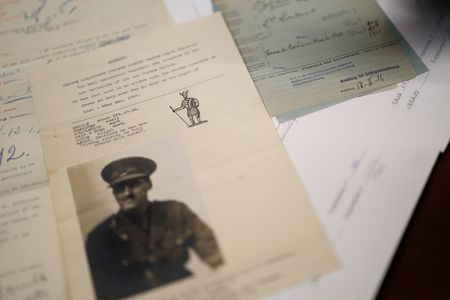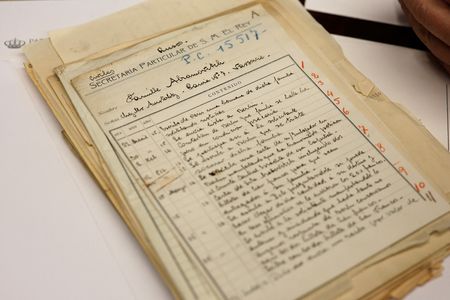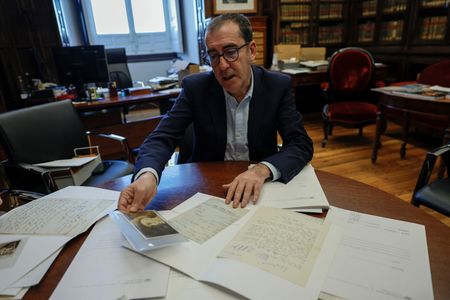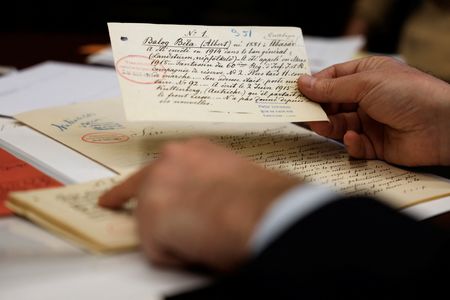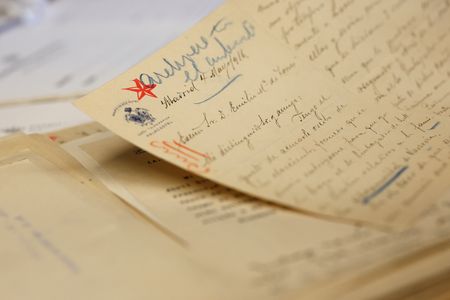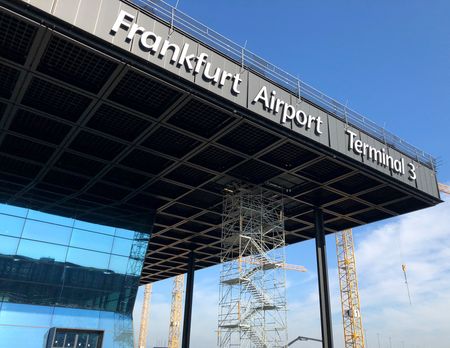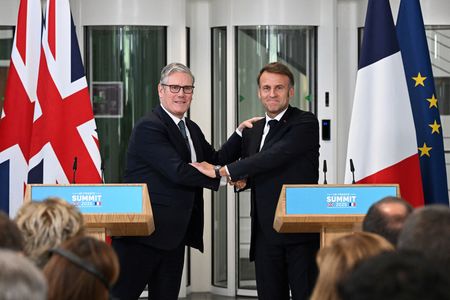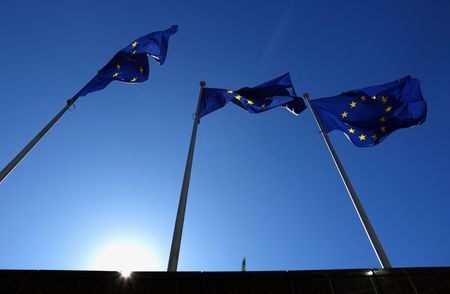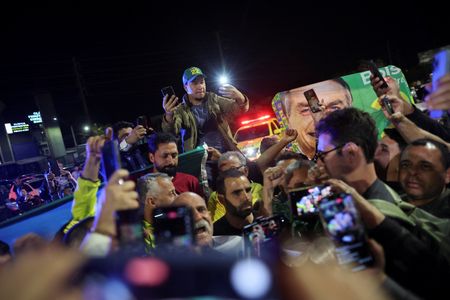By Emma Pinedo and Juan Medina
MADRID (Reuters) – A vast archive of letters sent by relatives of soldiers missing in World War One seeking the help of Spain’s King Alfonso XIII in finding them has been published online for war historians and families to comb through.
Spain was neutral in the 1914-18 war. But King Alfonso emerged as a diplomatic and humanitarian go-between for the families of the missing after successfully tracking down the husband of a French woman who wrote begging him for help. The man was found in a German prisoner of war camp.
That intervention was reported on June 19, 1915, in French newspaper Le Petit Journal and the story quickly spread through France, then to the British and German press, then to the rest of Europe.
Thousands of letters began to arrive at the Royal Palace in Madrid, Juan Jose Alonso, head of the Royal Palace archive, told Reuters. Most sought missing soldiers but some requested help for other matters such as transferring money to relatives on the other side of the war borders.
Not only ordinary families reached out to the Spanish king.
The Italian composer Giacomo Puccini sought his help in repatriating his nephew and a friend. The British writer Rudyard Kipling requested information about his missing son, and Spanish writer Miguel de Unamuno wrote asking after a French soldier whose connection to him is a mystery.
Courtiers set up a “war office” to sort the requests into one file for the archive and one to be sent to the relevant embassies to enquire, providing the soldier, which regiment they belonged to, their rank, the place where they hade disappeared, and the date of disappearance.
When the embassy completed its research, the Royal Office replied to the relatives.
Among the letters was one from Sydney Gamble, a firefighter in London who had lost all hope in finding his son, Lieutenant Richard Summer Gamble, after he went missing at the Ferme du Bois battle in France in May 1915.
Gamble wrote to King Alfonso telling him they had met during his visit to the London Fire Brigade some years earlier, and attached his son’s picture and including a drawing of a tattoo he had of a Viking soldier in full armour.
Most of the time – as in Gamble’s case – the relatives’ queries were unsuccessful but in around 4% of the cases the person was found, usually dead. At least the family had a closure, Alonso explained.
Adelia Abramovitch, a Jewish seamstress from Poland whose parents had died, wrote to the king to ask for help in discovering the fate of her younger siblings in Warsaw after the Germans took the city.
When the war office responded that they were fine, she replied back attaching 200 francs and asking the king to send it to her family.
Her file, marked with a red star indicating the king had showed a special interest in the case, includes 14 cash remittances between 1914 and 1916.
Her request for her brothers and sisters to be transferred to Paris could not be fulfilled despite Spain’s diplomatic efforts, according to the archive notes.
TESTIMONY OF WAR DEVASTATION
World War One, also known as the Great War, claimed the lives of more than nine million soldiers.
Spain, in the economic doldrums after losing most of its colonies, remained neutral, while the king himself was caught between the warring sides since his mother was of Austrian-German origin and his wife British.
Today, the archivist Alonso said, the 190,000 files and the original letters, many with attached maps or photographs, serve as a testimony of the devastation of the war, as well as highlighting Europeans’ idiosyncrasies.
“The British are the most exhaustive and also the most literary, the French are the most sentimental, the Germans are very dry,” he said.
The archive can be found here.
(Reporting by Emma Pinedo, editing by Aislinn Laing and Angus MacSwan)

